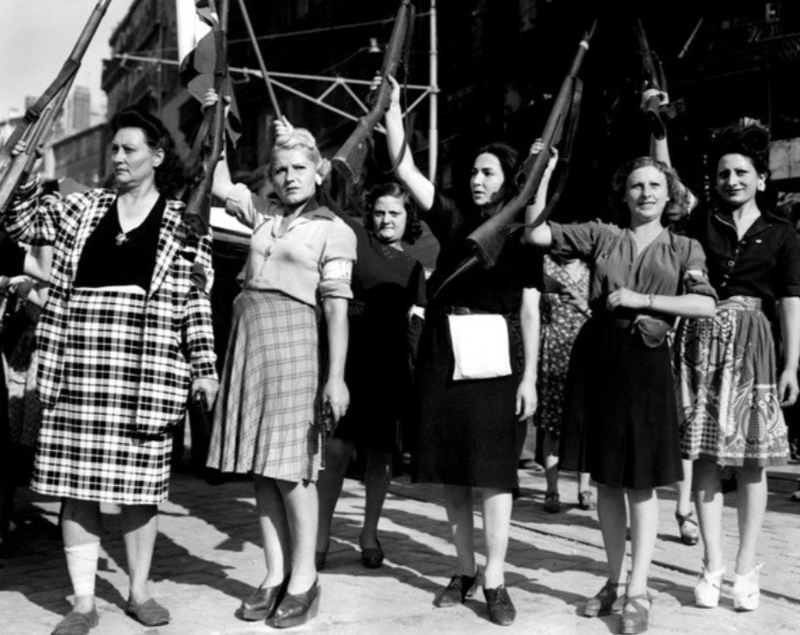WOMEN AT WAR (WWII)
WOMEN IN THE RESISTANCE
The situation of women before the First World War was not favorable to them. Indeed, in the first half of the twentieth century, women were considered inferior, without reflection or maturity. They were only responsible for the household expenses and the children's education. The legislation also opposed their freedom as in the «Napoleon Code » in which women could not dispose of their personal property without the permission of their husbands, or to work without the consent of their family.
Despite this, the entry into the war of France against Germany in 1939 upset the situation of women. They were compelled to work and became their husbands’ substitutes but they sometimes joined the Resistance.
We will therefore look at the image of women in that conflict, and ask what role did they play in the Resistance and if they were granted a place in history alongside with men?
Most of the women who joined the Resistance in the years 1940 and 1943 belonged to upper middle classes. For example, They had a job they had chosen. It wasn’t badly considered to be a social worker, a teacher or a nurse, at that time. For instance Jane Sivadon a resistant woman, ran a nursing school. Although, if women were considered a weak being, it became an asset in the war context. Indeed, they were less suspicious. Resistant women were well integrated in their daily life, and could easily overcome the mistrust of the police forces. After the war, women who had been a great help for France, went back to their daily tasks : household, teaching, caring for children, cooking… Most women didn't break out the role they played as resistants and did not join the meetings of former « Shadow Fighters ».
Nevertheless, they often participated in youth movements, a commitment also considered dangerous since it implied that education was no longer exclusively given by the family environment.
To put it in nutshell, the resistants were strong-willed and autonomous women with a large independent mind.
But this spirit has also existed in more modest circles, such as the communist party. Some women in the Resistance were members of « the Popular Front » or « the Union of French Women ».
To conceal, to harbor, to feed, to supply ; these were the missions that the majority of them would perform hiding. Within the networks, they provided secretarial services, while officers would disturb public demonstrations. In the meantime, others had joined the units of the Free France as doctors, nurses and aviators. They suffered the same fears as men. According to JP Salomé, the director of « Women of the Shadow » in the resistance, some women had even undergone military training in order to be spies to face the nazis.
However the struggle of women led to the recognition of the essentiel function of civil and political rights : the right to vote (granted in 1944) and be elected to the local and national elections (town councils, National Assembly).
We can see that the Resistance is above all considered as a man's business. Women were forgotten in the history of the Resistance, their souls being taken into account as weak and the Resistance rather considered as a male affair. But today, France is starting to take an interest in these women who have been a key figure of WWII. Thus, in our researches, we have discovered many books that could interest you in the subject, like : Rita Thalmann, Being women under the Reich III, digital edition, Chryséis Editions, 2014 ; or Claude Quétel, Women in War 1939-1945, Larousse, 2004 who devoted his works to the neglect of women in the Resistance.
Anne Perret et Héléna Piau






/https%3A%2F%2Fassets.over-blog.com%2Ft%2Fcedistic%2Fcamera.png)
/https%3A%2F%2Fstorage.canalblog.com%2F21%2F33%2F1624309%2F129056081_o.jpeg)
/https%3A%2F%2Fstorage.canalblog.com%2F65%2F26%2F1624309%2F128946767_o.jpeg)